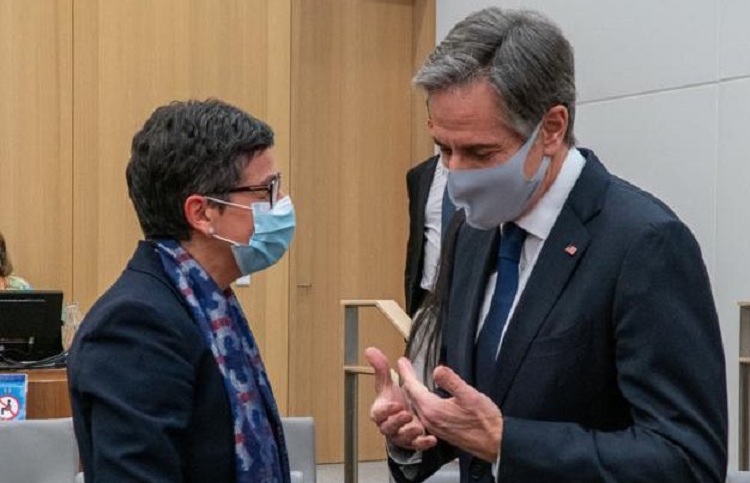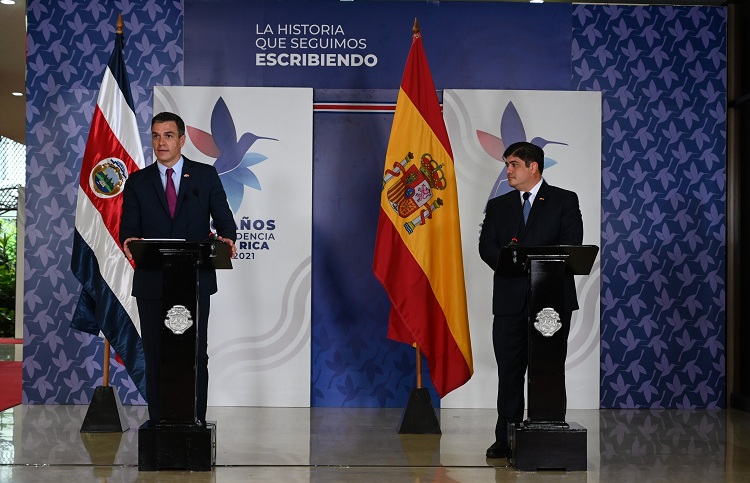The Diplomat
The US Secretary of State, Antony Blinken, spoke by telephone yesterday with the Spanish Minister of Foreign Affairs, Arancha González Laya, to whom he conveyed his commitment to migration that takes place through “regular channels” and in a “safe, orderly and humane” manner, according to information provided by the State Department.
The statement is a veiled criticism of Morocco’s attitude in allowing a massive influx of migrants across the border with Ceuta three weeks ago, which sparked a diplomatic crisis with Spain. However, the State Department spokesman, Ned Price, did not go further in his explanations in the communiqué issued.
Washington seeks to maintain a position that gives a certain degree of support to an ally such as Spain, where it has important military interests, but without provoking unrest in Morocco, which it considers a key player in North Africa. For this reason, to date, they have limited themselves to recommending that both countries “work together towards a resolution”.
In any case, Joe Biden’s administration has not reversed the decision taken by former US president Donald Trump to recognise the Moroccan ownership of Western Sahara, in a gesture that is part of the process of rapprochement between Israel and Arab countries.
However, Bliken’s spokesman said on Wednesday that there is no continuity in the policy of the two administrations in relation to the Maghreb and pointed out that with regard to the Sahara they are consulting directly with the parties on how to stop the violence and achieve a lasting solution.
Nor was the Spanish Ministry of Foreign Affairs more explicit about what was discussed in the conversation, and according to a message from the minister on her Twitter account, they spoke of ‘cooperation on migration issues’. Subsequently, Spanish diplomatic sources assured that there had been a great deal of agreement on migration issues “seeking to promote orderly, safe and regular migration”.
González Laya also stressed on Twitter the “commitment to work together for stability in the Mediterranean, the Middle East and Latin America”.
The aforementioned diplomatic sources added that in relation to the Middle East, they spoke of working together to maintain the ceasefire between Israel and Palestine, offering humanitarian support and preparing the conditions for a long-term two-state solution.
According to the minister, they also talked about promoting an “ambitious vision” for NATO for 2020. In this regard, the State Department information adds that, in the conversation, Blinken “reiterated US support for NATO, including an increase in common funds”, as well as its “commitment to work with the EU (European Union) and other allies to address common challenges, including in the Middle East, Venezuela and Nicaragua”.
Moreover, on the bilateral front, the spokesman added, the talk served to “reaffirm the strong alliance between the United States and Spain, their friendship and their transatlantic relationship”.
The conversation between Blinken and González Laya also served to prepare for the meeting that Joe Biden will hold next Monday with the President of the Government, Pedro Sánchez, in the margins of the NATO Summit that both will attend in Brussels.







